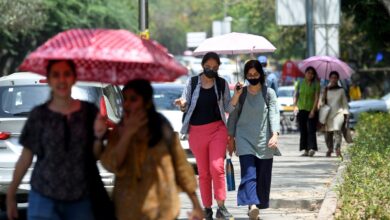Besides medication, oxygen support, and critical care; Chest physiotherapy, lung exercises for a speedier recovery

BHOPAL: Besides medication, oxygen support and critical care, physiotherapy is also helping in better and speedier recovery of Covid-19 patients in the city. Although one would not normally associate physiotherapists with the treatment of a contagious disease such as Covid-19, which primarily affects the pulmonary system, several patients who have recovered from the deadly disease say that physiotherapy has, indeed, helped them feel better while in hospital, besides cutting down their stay in the ICUs or general and private ward.
Free Press spoke to a few such patients who have been discharged from hospitals recently or are still in hospitals. Here is what they had to say:
X-ray of the lungs
“I contracted Covid-19 about 12-13 days after my husband succumbed to the disease. My lungs were around 35% infected and the oxygen level had dipped to around 86. I was admitted to hospital after I fell unconscious twice. My father, brother and his wife were also admitted to the same hospital. My 62-year-old father is a heart patient and also a diabetic. We all have recovered from the disease. Of course, the medicines did their work, but I feel that physiotherapy contributed largely to our recovery. We were given physiotherapy after identifying, with the help of X-ray, where exactly phlegm was stuck in our lungs. Iím fine now and will be discharged soon.”- Sangeeta Gupta, 38
Spirometric exercises
“I am a fourth-year MBBS student in a medical school in Russia. Besides me, my mother and my Mamaji were down with Covid. My condition was serious with almost 70% of my lungs infected. My mother had mild pneumonia. After my stay at the hospital, I feel that itís very hard to get out of the ICU. I was given Remdesivir and Tocilizumab injections. I had to spend six days in the ICU. I am likely to be discharged in a day or two. Physiotherapy and lung and spirometric exercises helped a lot in my quick recovery.”- Pranjala Saxena, 23
It was a great relief
“I returned home yesterday from a hospital after spending eight days there. Four members of my family, including my husband, were infected. Our oxygen saturation levels had dropped to 85-86 and 35-45% of our lungs were infected. We were given physiotherapy for half an hour each morning and evening at the hospital. It was a great relief. The physiotherapist helped push out the phlegm trapped in the lungs using pressure points on the chest. Besides, we were given nebulizers, which we used every two hours.”- Pooja Shivhare, 31
It helped me relax
“I developed Covid-like symptoms on April 27. I was running a temperature and also had a headaches. On May 5, I was admitted to a hospital. My CT score was 3/25. I wasnít in the ICU. I was in a private ward and was given oxygen support with the help of a concentrator. Physiotherapy gave me great relief. It helped me relax. Despite my age, I got better quickly and was discharged in nine days.”- Ganpati, 70
Mucous biggest enemy
“I’m a paediatrician by training. During my stint at the ICU for children at Sir Gangaram Hospital in Delhi, I experienced that chest physiotherapy works very well in case of kids suffering from pneumonia. What happens is that mucous gets deposited in the lungs of such patients. Physiotherapists displace that mucous through compression or vibration. It gets pushed into the throat and can be spitted out. When I started treating Covid-19 patients, I wondered why this technique couldnít be used on adults. I did that with excellent results. Chest physiotherapy excellently complements medicines and oxygen support, pushing improvement from 40-50% to 70-80%. Once the mucous is out, it improves the oxygen saturation level. The patient feels better. We also ask our patients to do lung exercises using a spirometer. These exercises are like the anulom-vilom. Physiotherapy and lung exercises curtail patientsí hospital stay. The longer a patient stays in hospital, the more stress it causes him or her,”- Dr Tarun Solanki, Apple Childrenís Hospital, Ayodhya Bypass, Bhopal




